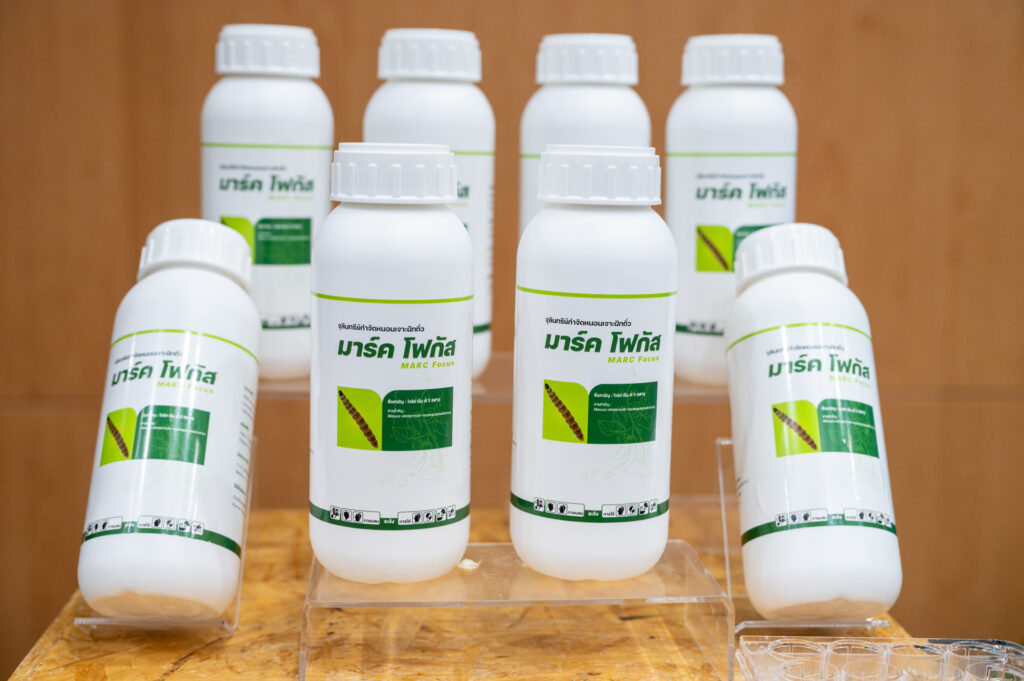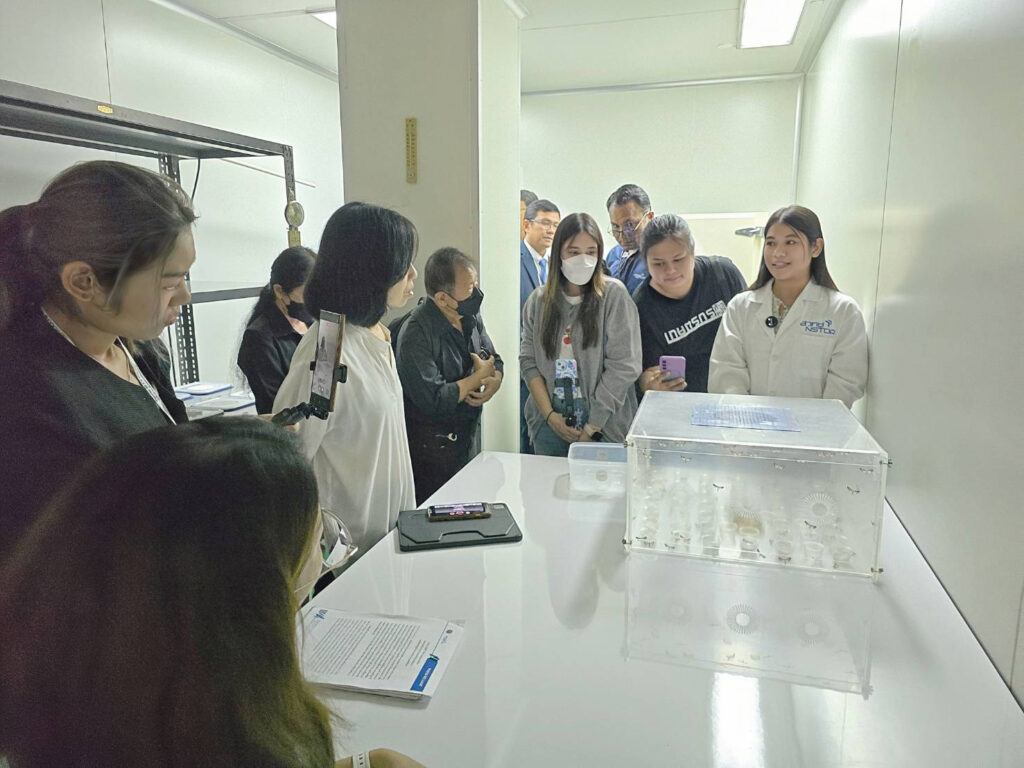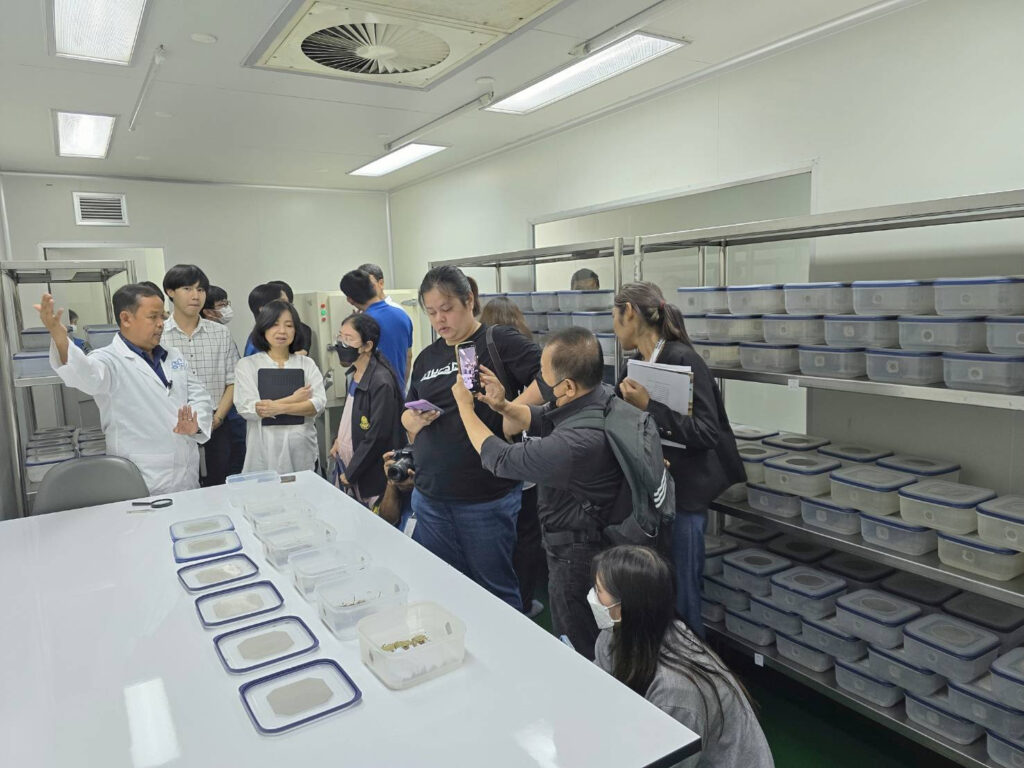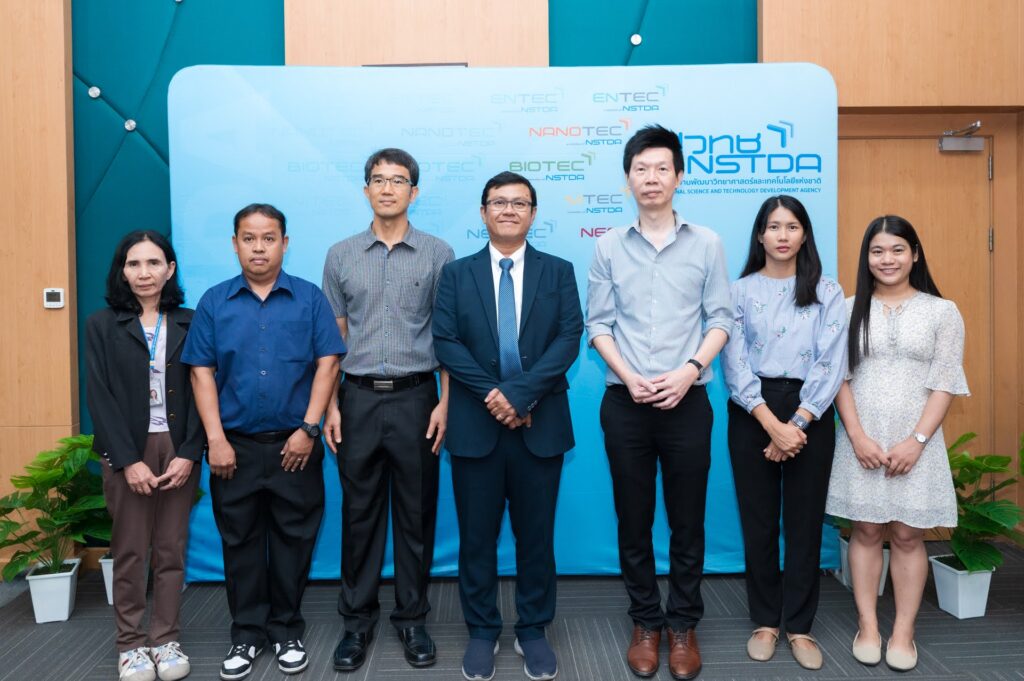
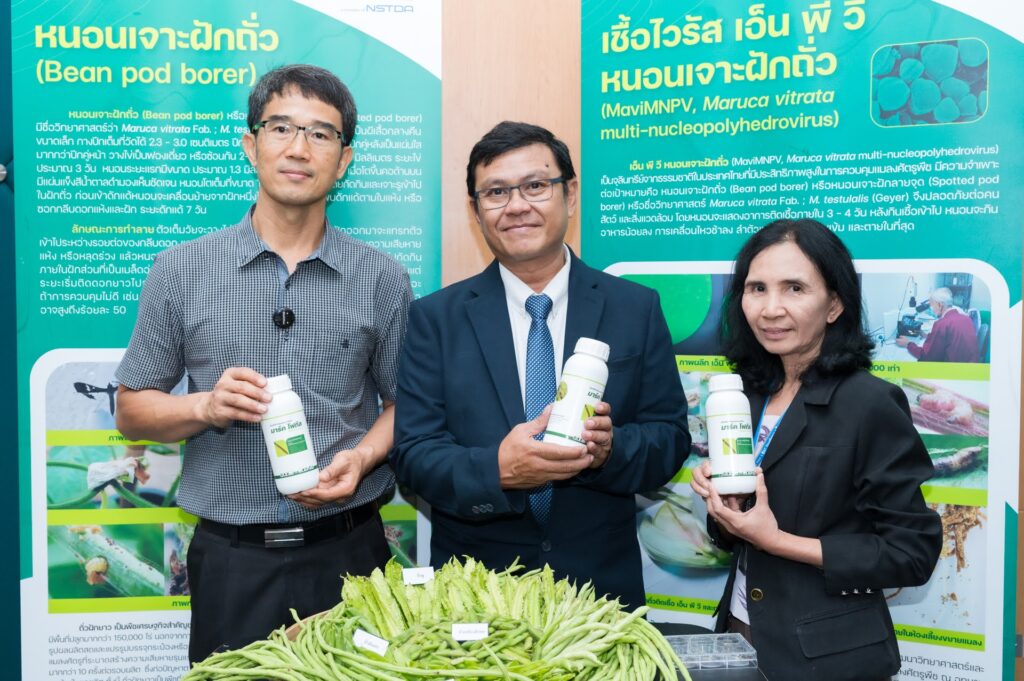
Pathum Thani, 6 June 2025 – The National Center for Genetic Engineering and Biotechnology (BIOTEC), the National Science and Technology Development Agency (NSTDA), has developed a new biological innovation: the NPV (Nuclear Polyhedrosis Virus) to control the “bean pod borer,” also known as the spotted pod borer. This pest is a major cause of significant damage to legume crops, particularly the yardlong bean, a vital economic crop for Thailand.
A key feature of this new NPV is its high safety profile and specificity to the target insect (the bean pod borer), making it safe for humans, animals, plants, and the environment. It leaves no chemical residues on produce and offers a cost-effective and sustainable alternative to chemical pesticides. This innovation addresses the problem of pesticide resistance, reduces production costs for farmers leading to more stable incomes, and effectively controls the pest population. This development sustainably supports the growth of economic crops and represents an innovation in biological control agents that meets the needs of Thailand’s agricultural sector. It aligns with government policy to promote the reduction of chemical use and encourage the adoption of biological products for pest management.
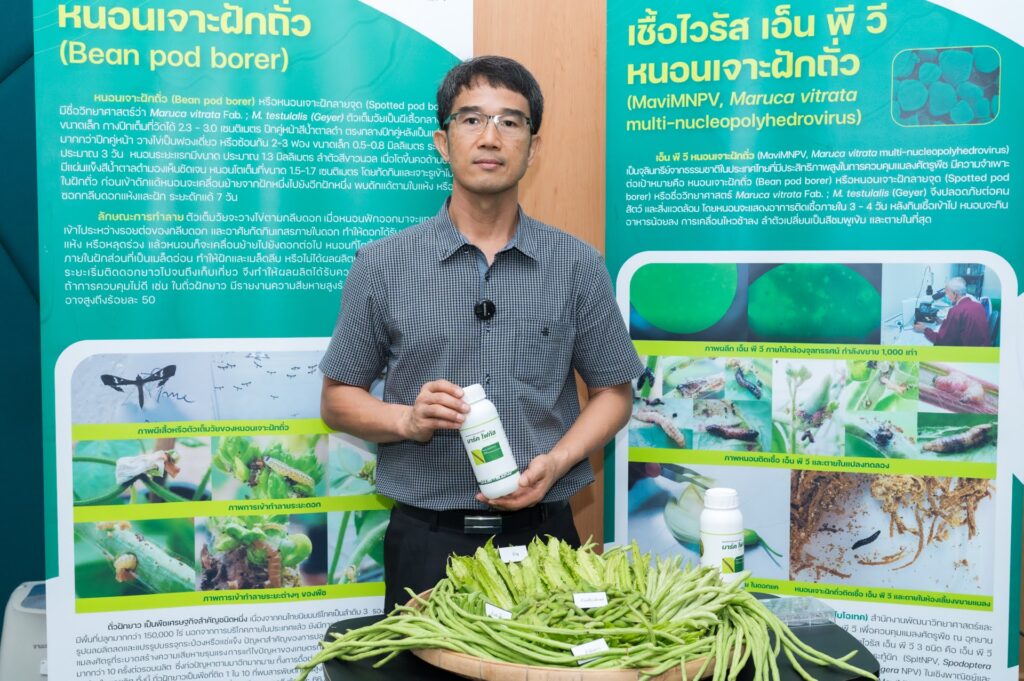
Mr. Samrit Kiewwong, a senior academic from the Biocontrol Technology Research Team (ABCT), BIOTEC, NSTDA, explained that yardlong beans are a significant economic crop in Thailand and rank as the third most consumed vegetable by Thais. However, cultivation faces a major challenge from the “bean pod borer,” a pest that causes severe damage to yields. The bean pod borer feeds on the flowers and seeds within the pods, leading to a 20-25% reduction in output, which directly impacts farmers’ income.
To address this issue, most farmers resort to chemical insecticides. However, this approach leads to numerous other problems, such as pesticide resistance in the target pests. Furthermore, it results in toxic residues on the produce, posing a danger to consumers. The problem of chemical residue in yardlong beans was confirmed by data from Thai-PAN (Thailand Pesticide Alert Network) in 2016, which found that yardlong beans had the third-highest level of toxic residues, detected in as much as 66.7% of the samples tested. This issue requires urgent resolution to enable farmers to cultivate yardlong beans sustainably and, most importantly, to ensure consumers have access to safe produce.
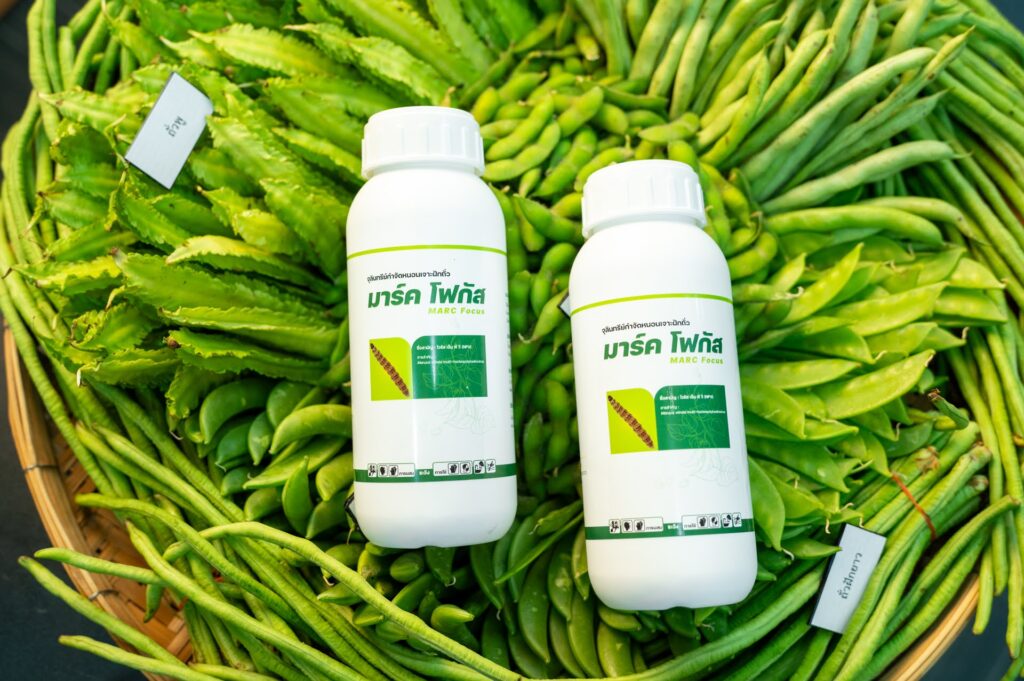
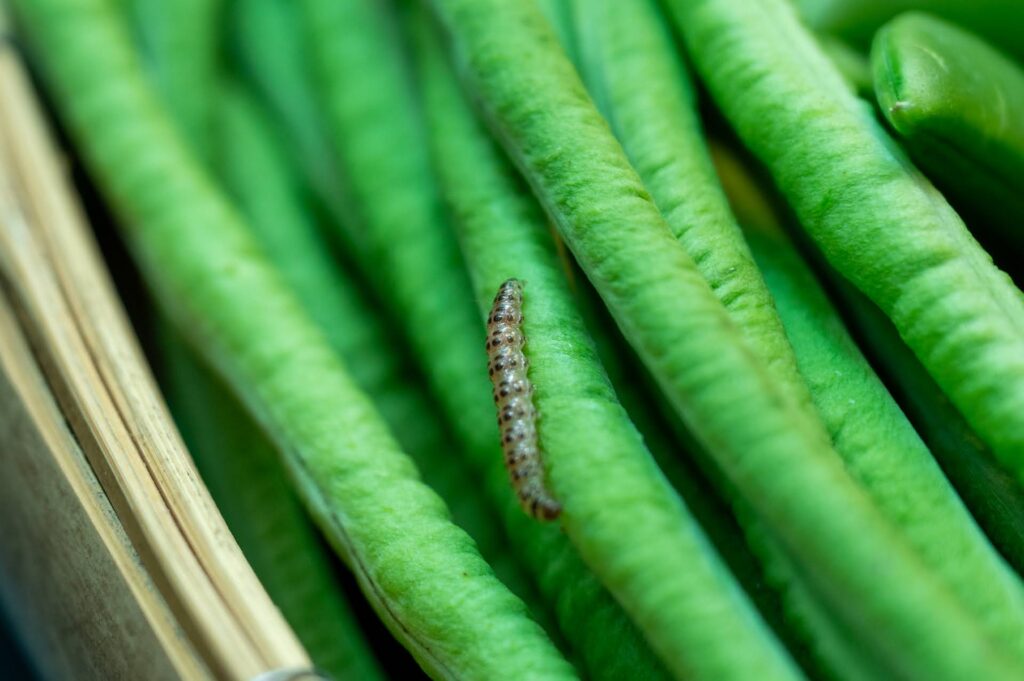
The research team from the Biocontrol Technology Research Team (ABCT) at BIOTEC, NSTDA, has developed a biotechnological innovation called “NPV Bean Pod Borer” (MaviMNPV, Maruca vitrata multi-nucleopolyhedrovirus), as a solution to the major problem of bean pod borer larvae damaging long bean yields. This biological microorganism is a highly effective natural pathogen used to control the pest. Its mechanism of action and safety features include being a virus that infects specific pest insects, particularly the bean pod borer (Maruca vitrata) or the spotted pod borer. This specificity ensures it is safe for humans, animals, and the environment. When the bean pod borer ingests this NPV virus, infection symptoms appear within 3-4 days; the larva reduces feeding, moves more slowly, and its body turns dark pink before ultimately dying.

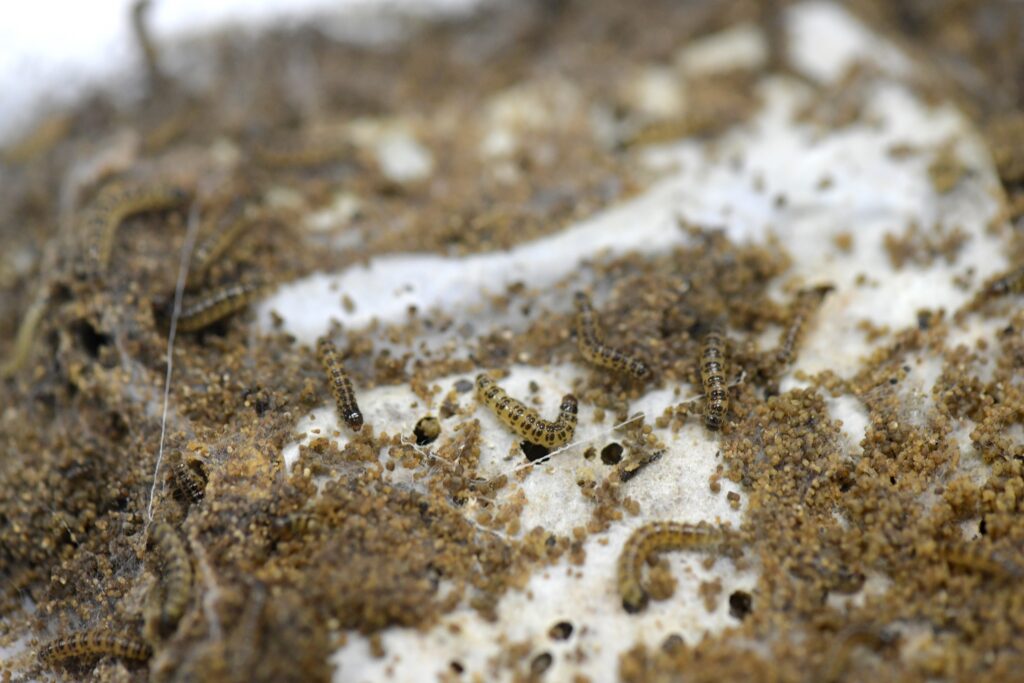

Dr. Kriengkrai Mosaleeyanon, a researcher at BIOTEC and representative of the Director of Integrative Crop Biotechnology and Management Research Group at BIOTEC, NSTDA, further emphasized that the Thai agricultural sector is facing challenges from pests, which directly impact crop yields and farmers’ income. Relying on chemical pest control can address immediate issues but long-term effects on the environment and consumer health are concerning. Therefore, biocontrol technology plays a crucial role in ensuring sustainability for both agriculture and the environment. The discovery of NPV Bean Pod Borer represents a significant milestone, underscoring that biotechnology can effectively solve agricultural problems in an environmentally friendly manner. Dr. Kriengkrai highlighted, “Biological control is not just an alternative; it is the way toward safe and sustainable agriculture. NSTDA is committed to researching and developing biotechnologies as sustainable solutions for Thai farmers.”
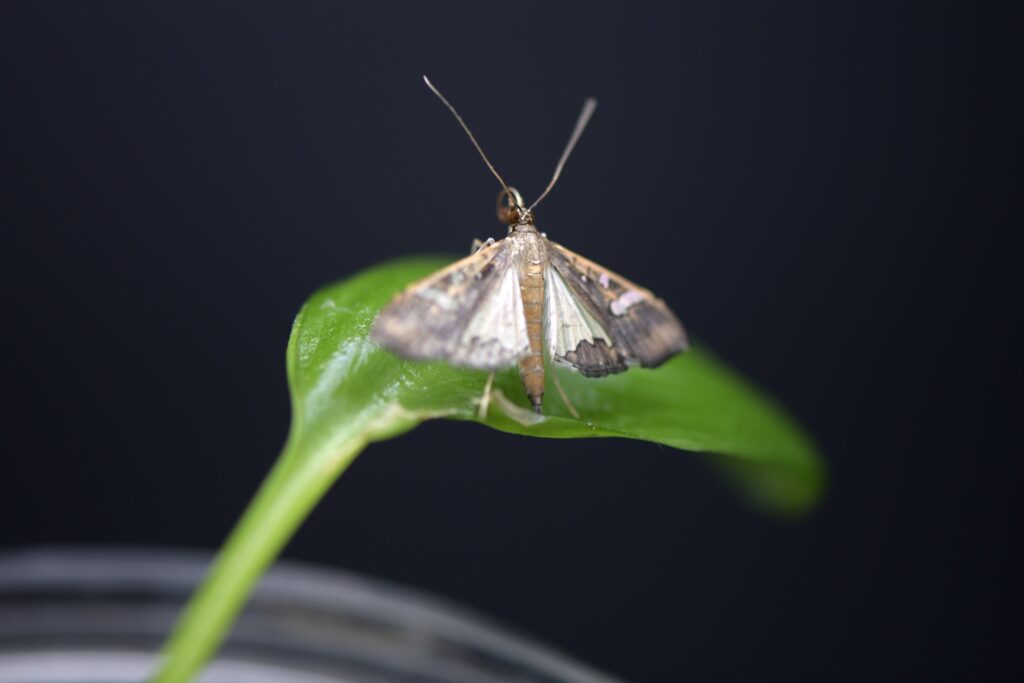
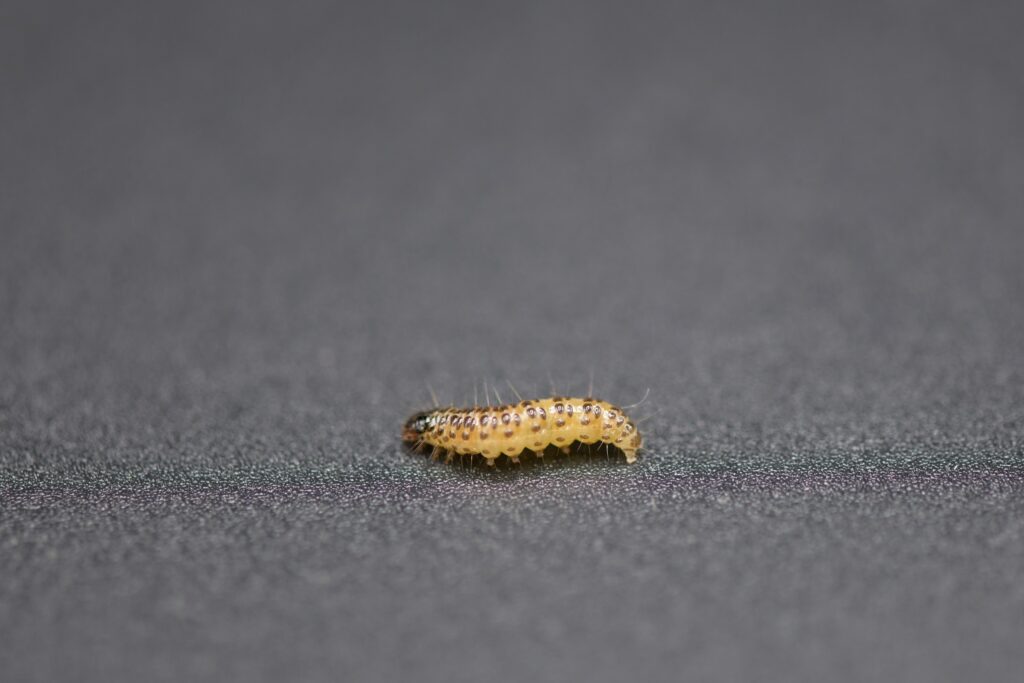
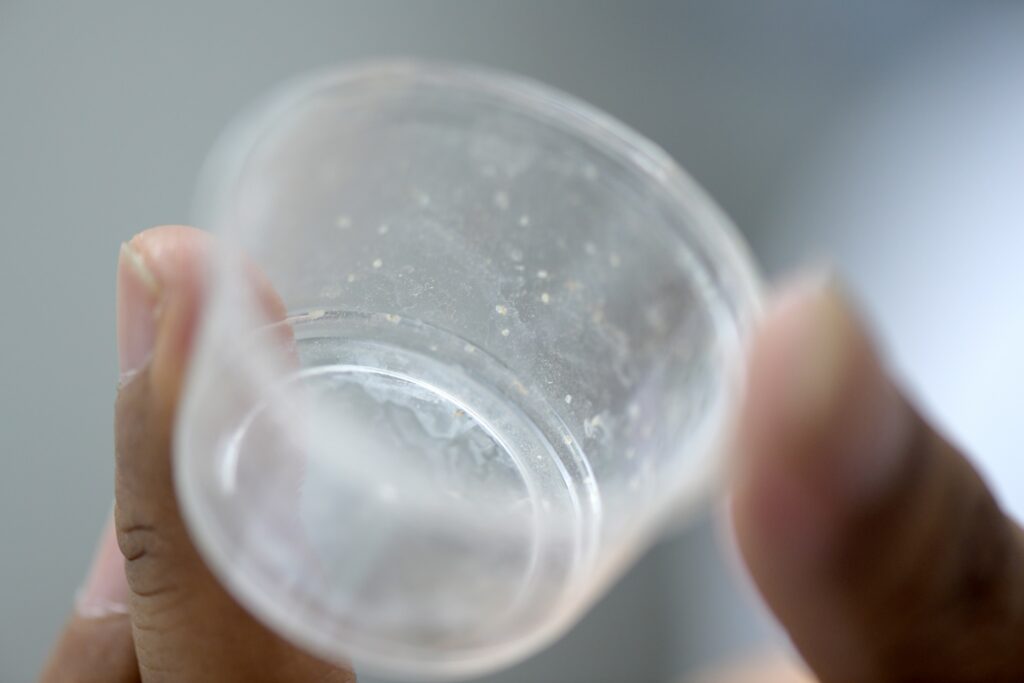
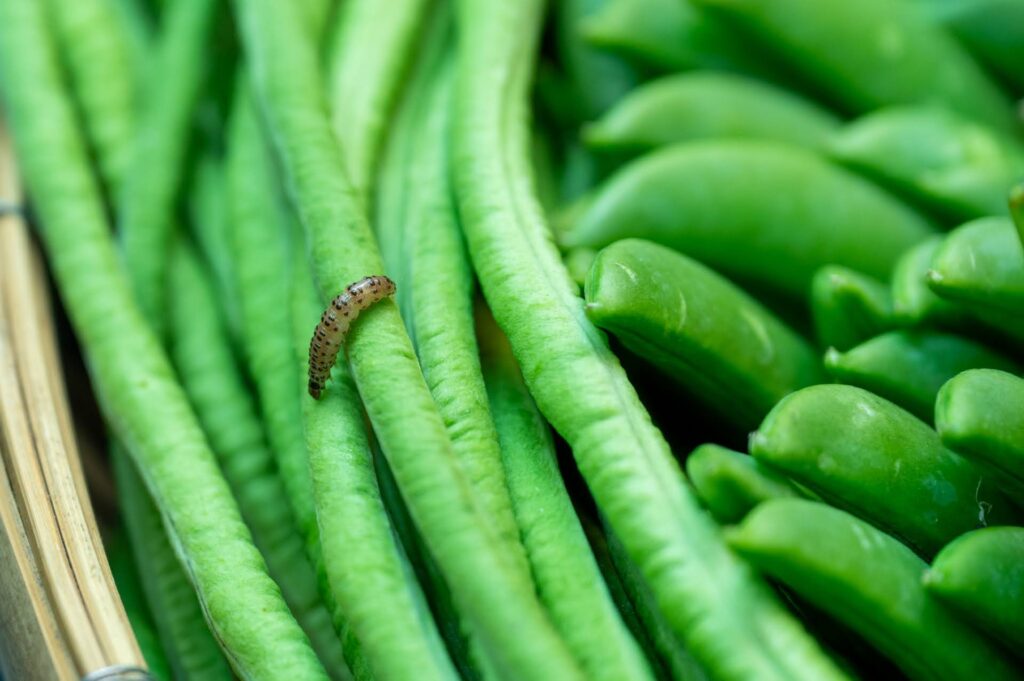
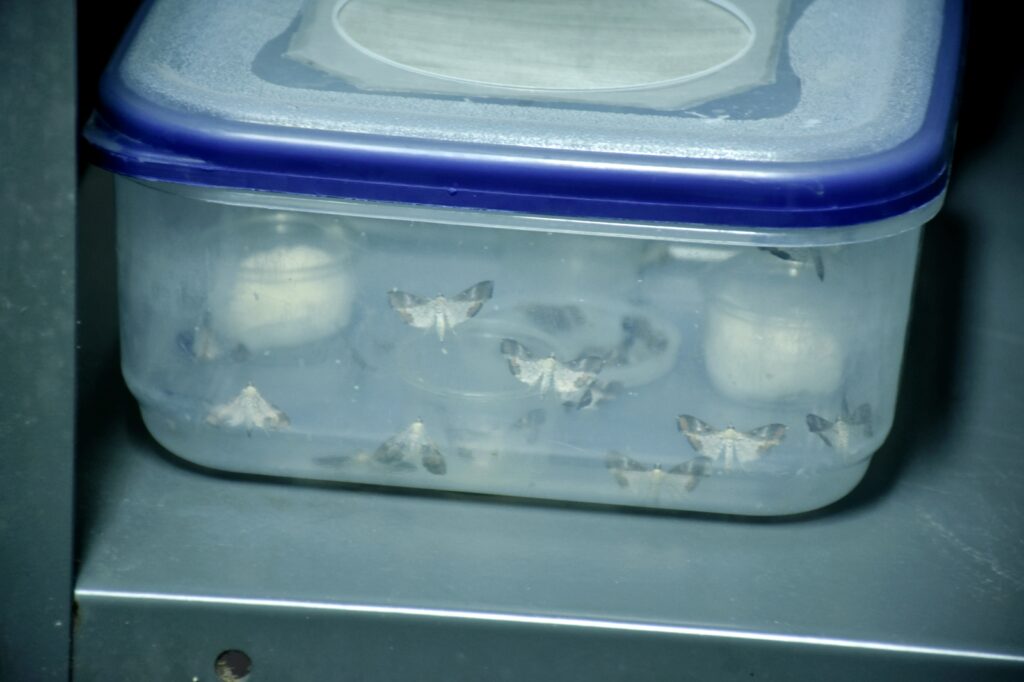
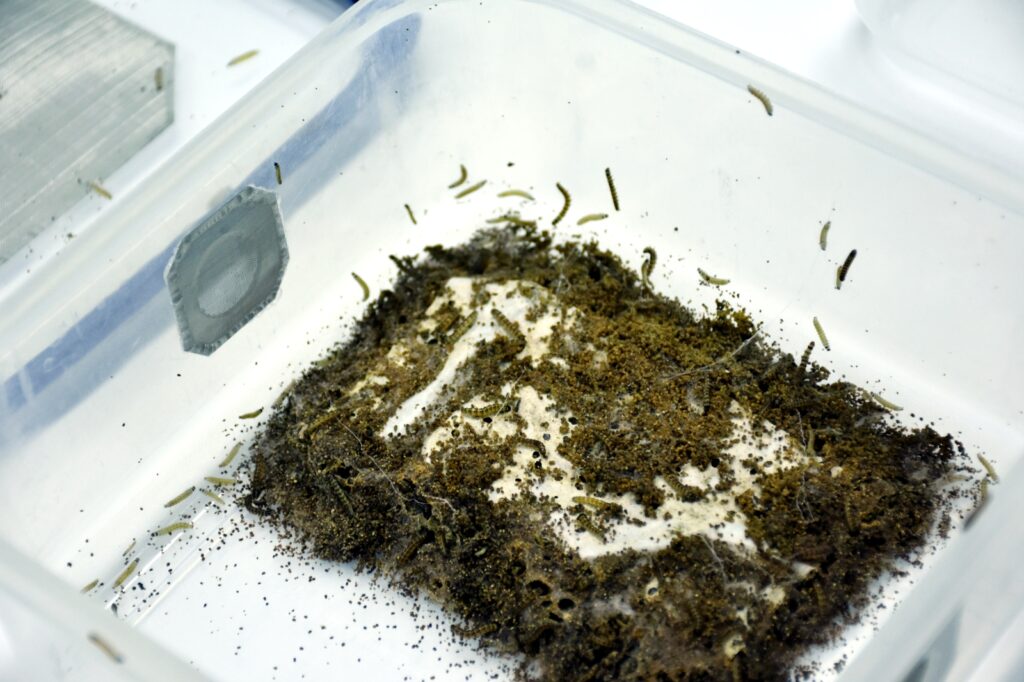
BIOTEC is inviting interested long bean farmers to participate in test plots using the biopesticide NPV Bean Pod Borer, as part of efforts to elevate the safety and sustainability of long bean production. Interested parties can inquire for more details at the pilot plant at phone number 0 2564 7000 ext. 3781 or contact the BIOTEC Business Development and Project Management Section at 0 2564 7000 ext. 3310.
